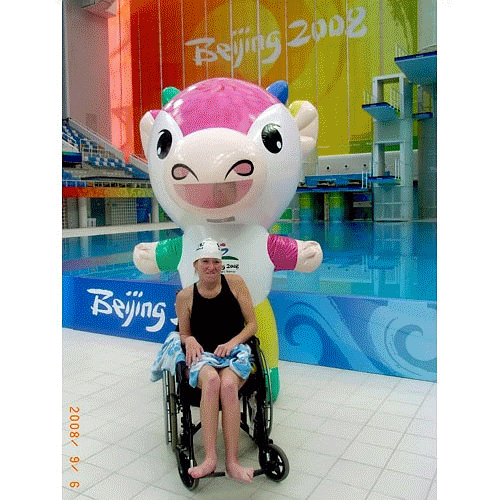Latest News Archive
Please select Category, Year, and then Month to display items
11 February 2020
|
Story Leonie Bolleurs
|
Photo Leonie Bolleurs
 Prof Liesl van As, Academic Head of the Department of Zoology and Entomology, is passionate about equal rights for parasites.
Prof Liesl van As, Academic Head of the Department of Zoology and Entomology, is passionate about equal rights for parasites.
As a research-led institution, the university has 1 600 female researchers (2019 statistics), with 63 boasting ratings from the National Research Foundation (NRF). Four of the UFS SARChI Research Chairs are also headed by women.
One of the scientists at the University of the Free State (UFS) who gets excited about research is Prof Liesl van As, Academic Head of the Department of Zoology and Entomology.
She was part of the UFS team that established Africa’s largest digital laboratory, equipped with 227 microscopes, to ensure that undergraduate students from Zoology and Entomology, as well as Plant Sciences (Faculty of Natural and Agricultural Sciences), have access to hi-tech equipment for a cutting-edge teaching experience.
The good and the bad
But she also has a passion for her own research – that of fish parasites. Her most recent research work is about the biodiversity of fish parasites in natural river systems, with a focus on the Orange River and its tributaries, as well as the Okavango River and Delta in Botswana.
A few years ago, the Department of Agriculture, Forestry and Fisheries expanded their mandate for fisheries management by adding inland fisheries and aquaculture to their list of responsibilities.
Prof Van As believes her research will add value to this process. “If we are going to expand inland fisheries, we need to expand our knowledge of what is happening in natural systems. It is important that we know and understand what potential problems might arise in aquaculture conditions.”
Equal rights for parasites
“We also need to understand that not all so-called parasites are bad, some have co-evolved with their hosts and they are part of our overall biodiversity. If the hosts are going extinct, so does this amazing spectrum of symbionts,” says Prof Van As, who is enthusiastic about promoting ‘equal rights for parasites’ (Wilson, 1995).
When it comes to the future of women in research, Prof Van As – inspired by life itself, believes the possibilities are endless. “If you can dream it, you can do it. Ex Africa Semper Aliquid Novi (out of Africa there is always something new),” she states.
Sarah, our own champion
2008-11-05
 |
| Sarah Shannon at the Paralympic Games in Beijing |
Sarah Shannon, a second-year student in the Postgraduate Certificate in Education, has been involved in disability sport on national level for the past 12 years. Sarah has cerebral palsy.
In 1996 she participated at the South African National Championships for the physically disabled for the first time, entering for several sporting codes and winning five gold medals. In swimming she participates in the S3 class together with other swimmers that have comparable abilities to hers.
In 1997 she decided to focus on swimming competitively. She participated in her first national championships for swimming that year. After that (1998) she represented South Africa on international level at the International Paralympic Committee’s (IPC) Swimming World Championships in New Zealand where she ended 4th in the 50m backstroke and 7th in both the 50m and 100m freestyle in her class.
In 1999 she represented South Africa in Johannesburg at the 7th All Africa Games and won a silver medal for the 50m freestyle and a bronze medal for the 100m freestyle.
In 2000 she was part of the South African team at the Sydney Paralympic Games where she reached the finals and finished 7th in the 50m backstroke and 8th in the 50m freestyle. Northern-KwaZulu-Natal also awarded her the Junior Sportswoman of the Year award in 2001. In 2002 she participated at the South African Senior National swimming championships for KwaZulu-Natal in the multi-disability category.
In 2005 she completed the Midmar Mile. She also represented South Africa at the world championships for athletes with cerebral palsy in Boston in the United States of America. She won two gold medals for respectively the 50m freestyle and the 50m backstroke and two silver medals in the 100m and 200m freestyle. She was also nominated to represent South Africa as athlete’s representative on the world committee of CPISRA (Cerebral Palsy International Sports and Recreation Association). In this year Sarah also received the KwaZulu-Natal Premier’s Sportswoman with a disability award of the year.
In 2006 she qualified for the IPC world championships but could not attend.
In 2007 she represented South Africa once more at the Visa Paralympic World Cup in Manchester in the United Kingdom where she broke the South African record in the 50m backstroke, finishing 7th in the 50m freestyle and 6th in the 50m backstroke.
She was also part of the very successful Team South Africa to the Paralympic Games in Beijing. She reached the finals in both the 50m backstroke and 50m freestyle. She finished 7th in the 50m freestyle and 6th in the 50m backstroke in personal best times for both events. She has been participating in the able bodied South African National Swimming Championships since 2002. She is currently ranked 2nd in the world for short course items and 11th for the long course items. She is truly our best swimmer in the S3 class.